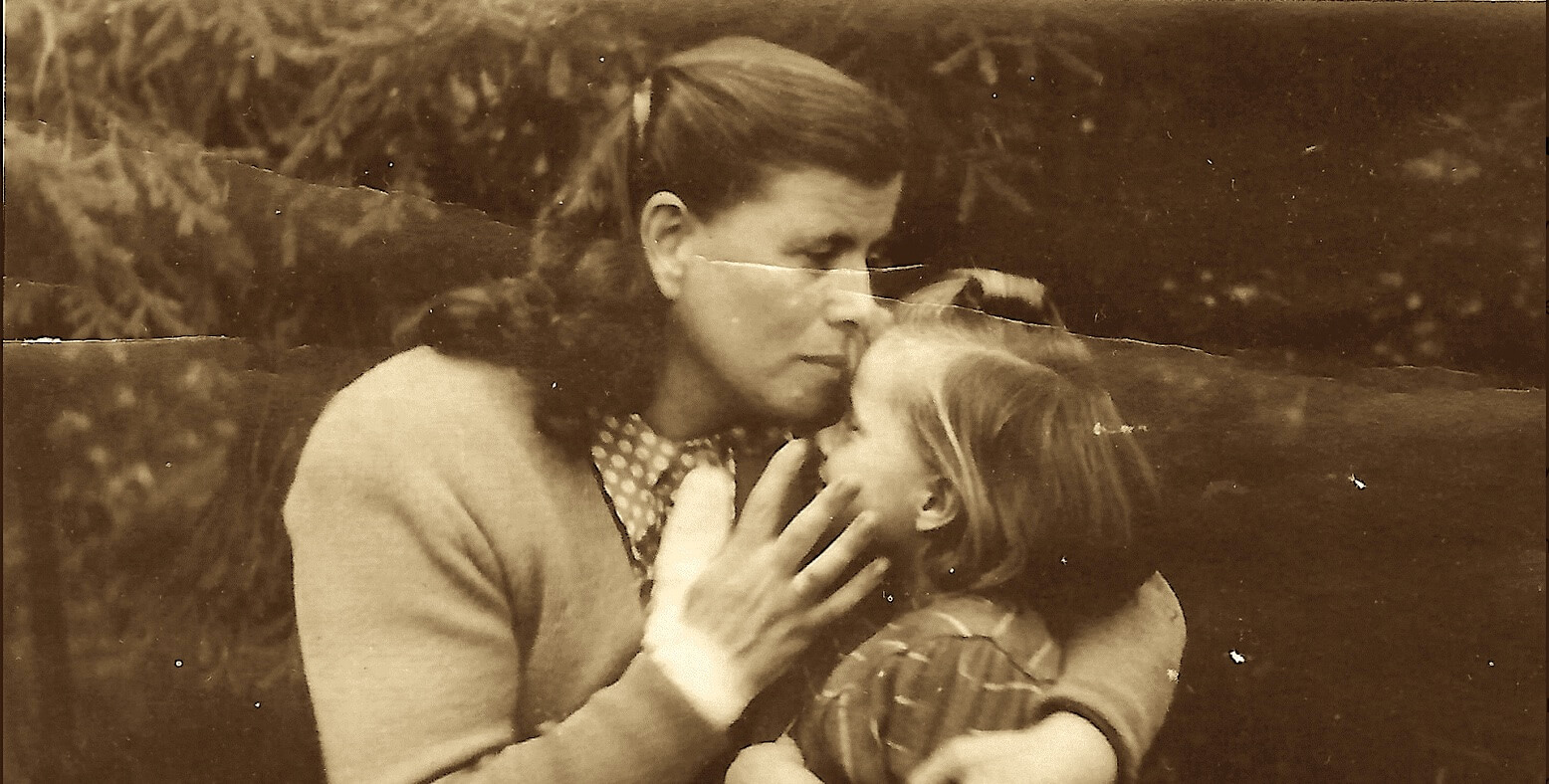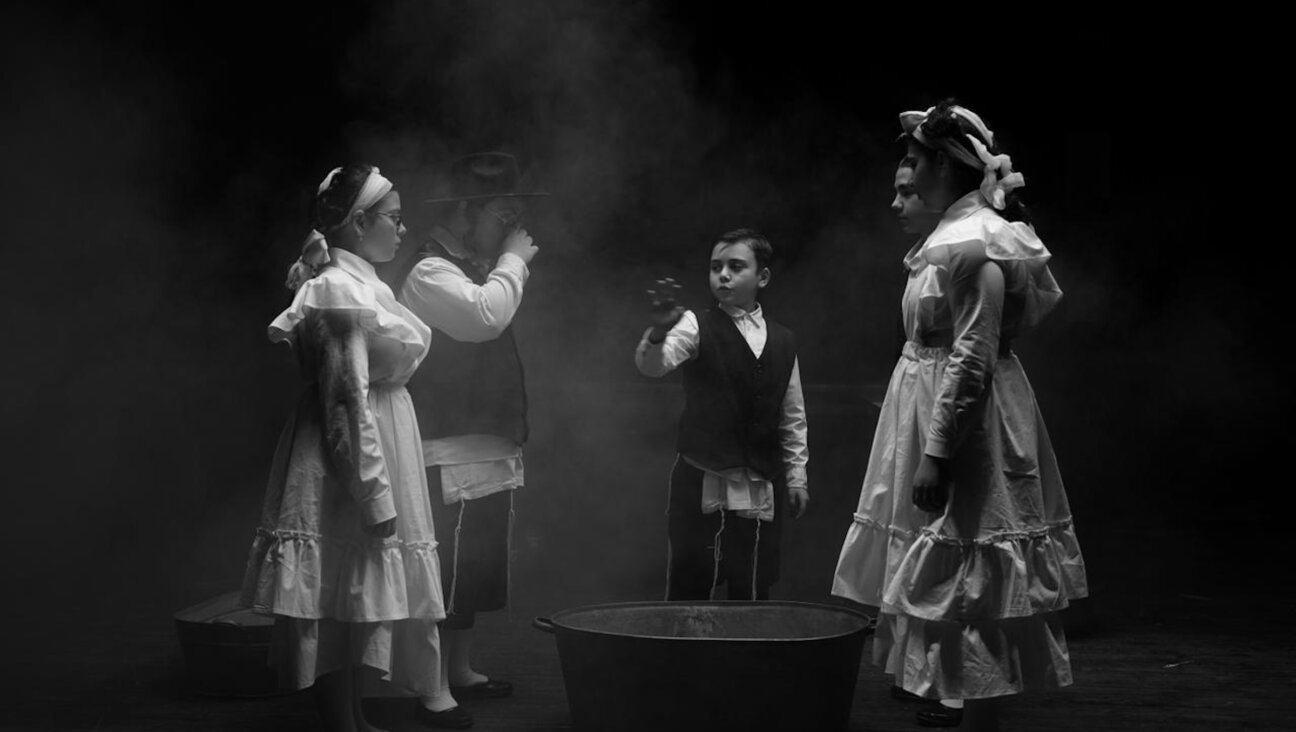These two Yiddish words provided an escape hatch for many Holocaust survivors
The terms ‘knipl’ and ‘pekl’ may sound adorable, but they once signified a lifeline for Jewish refugees

Graphic by Angelie Zaslavsky
To many people, knipl and pekl sound like cutesy Yiddish — evoking words you might have heard in immigrant neighborhood dry goods stores, New York City deli counters or in conversations among old Jews sitting on park benches in Brighton Beach and pre-chic Miami Beach.
But, for me, whose first five years of life were spent in Bergen-Belsen displaced persons camp, those two words signified an escape hatch, a potential lifeline. A knipl is a secret stash of cash and a pekl is a bundle or, in current parlance, a go-bag. Together they’re the secret door when the exits are locked, barred, or too frightening to approach.
In 1939, my parents fled Poland, ran into Russian troops and survived nearly two brutal years in Siberia, after which they were permitted to relocate to less harsh climes. Of both their families, they were the “lucky” ones: They survived.
I was born in Kyrgyzstan after the war, and when I was only 10 days old, my parents and their now four children traveled several weeks by train back to Poland, where no kin had survived. They left Poland and were eventually smuggled into the English-controlled zone in Germany and the refugee camp that was a restructured Nazi military barracks adjacent to Bergen-Belsen. In 1951, we were allowed to emigrate to the United States.
It bears mentioning that my parents’ first choice during those postwar years was Israel, my father having been a lifelong Zionist. But after the United Nations created the state of Israel, the land where Jews had lived for millennia, and the fledgling state was being attacked from all sides by neighboring Arab countries, they changed their minds. They couldn’t endure another war.
I fondly remember our cross-Atlantic voyage on the SS General Muir — the sleeping hammocks in the ship’s cargo hold; the beautiful American hostesses with their stylish hairdos, makeup and perfume; the sailors to whom I cozied up; the trays of fluffy potatoes, green vegetables, and chewy meats we received in the meal line. Unlike my parents, I wasn’t seasick. I was on the first adventure of my young life.
I grew up in Chicago without grandparents, aunts, uncles, cousins, no kin at all, knowing that Hitler murdered all our family, on both sides. Our friends were other newly arrived Jews with shared histories, losses and nightmares. It was years before I understood that “Hitler” was shorthand, our circle’s namesake for the Nazis, rather than a single person who committed this atrocity. He had hundreds of thousands of helpers, and millions of supporters and admirers.
I’m in my 70s now — a writer, who personally suffered no pogroms or fled my home — a member of an international Jewish writers’ group, whose members include leftists, rightists and in-betweenists; they are tattooed, married, partnered, wear sheitels (wigs), are gay, trans, bi and run the full gamut of identifications that exist today.
Since the brutal horrors perpetrated in Israel on Oct. 7 and that continue as I write, the posts in this group have quadrupled. Many writers are suddenly frightened, recalling the Jews’ history of pogroms, forced conversions, expulsions, and mass murders.
While others in our group have probably suffered overt and covert antisemitism at one point in their lives, one of my own experiences of this was that I was mentioned on Stormfront, a neo-Nazi internet forum. While attending a New Jersey museum lecture in the late 1990s on post-World War II immigrant communities, I mentioned that my family had lived in a displaced persons camp after the war. A local newspaper quoted me in the article, including my name. My name and comments were then described mockingly in Stormfront: “The camp must not have been too bad since she spent five years there.” It was a chilling experience.
One person in the group recently described helping her father, a university professor, move to a new apartment a number of years ago, and suddenly discovering a bag of cash.
“What’s this about?” she asked him.
“As a Jew,” he said, “one always needed a knipl and a pekl for a fast getaway.”
Other writers chimed in, some having heard these words from family and friends and others who also had their getaway stash.
Sadly, I’ve always been tuned into the precarious status of Jews in the world. Following the news on the heartbreaking events in Israel and the festering antisemitism, reminds me once again of the knipl and pekl — the stash and go-bag that many Jews keep — some of us in reality, tucked away in a closet, and some of us deeply imbedded in our fears.
















